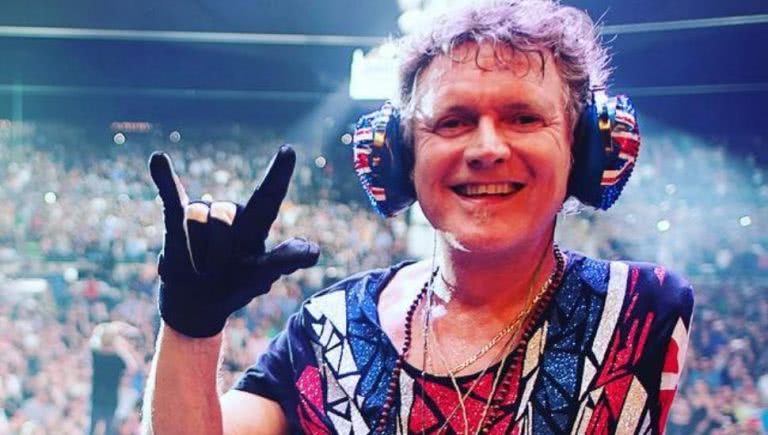Def Leppard drummer Rick Allen has opened up about about his mental struggle following the amputation of his left arm in a near-fatal car accident 35 years ago.
In a new interview with Modern Drummer, the Def Leppard rocker opened up about the terrifying ordeal, which lead to him having to re-learn how to play the drums with just one arm.
“I remember coming around in the hospital and then realising what had happened to me after the accident, and honestly, I wanted to disappear,” Allen admitted, adding, “I didn’t wanna do this anymore.”
“And then I started getting these letters from all over the world… I got encouragement from everywhere — from my family, from the guys [in the band], from people all over the world. And I don’t know what happened, but I discovered the power of the human spirit and just said, ‘You know what? I can do this.'”
He continued, “It was really a collective thing. It was all this encouragement I was getting from other people, and then it just manifested in wanting to succeed. And that’s exactly where it came from.”
It wasn’t just fans who offered their unwavering support to Allen following the accident, he said that his Def Leppard bandmates were pillars of support during a time that could have seen him face the end of his musical career.
“They left the decision to me, whether I wanted to go on or not, and they gave me time to grow and develop, really, a whole new style [of playing],” Allen said.
Love Music?
Get your daily dose of metal, rock, indie, pop, and everything else in between.
“And that’s all I needed — I just needed the time. I needed the time to build my confidence and realise that I could do it. Nobody ever said, ‘Well, you have to make a decision now.’ I think that was the most important thing — just that time that they gave me just to find myself.”
Allen now dedicates much of his time to assisting war veterans suffering Post Traumatic Stress Disorder (PTSD) as a result of sustaining injuries similar to his own.
“My desire is to encourage a support system for warriors, de-stigmatise PTSD, share their stories and offers alternative ways to pave the road to resiliency and health,” he told ABC in 2012.
Check out ‘Pour Some Sugar On Me’ by Def Leppard:


































